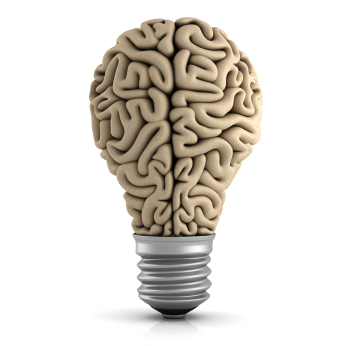Published: November 10, 2011

istockphoto
This finding raises questions of great importance about how to educate the health care workforce, how to develop and implement strategies to facilitate identifying fathers with mental health problems, and how to develop referral systems and ways to reimburse for this vital work, wrote Weitzman and colleagues.
Children who live with their depressed fathers are more likely than their peers to have emotional and behavioral problems. That’s the finding of Michael Weitzman, M.D., a professor of pediatrics and psychiatry at New York University School of Medicine, and colleagues published in the November 7 Pediatrics. The researchers said the negative effects of maternal mental health problems on child health are well documented, but this is the first study to show that living with depressed fathers is independently associated with increased rates of children’s emotional and behavior problems. Their study population was a representative sample of 22,000 children and their parents.
Source: American Psychiatric Association
Published: November 10, 2011
If future research can pinpoint why an excessive number of brain cells are there in the first place, it will have a large impact on understanding autism, and perhaps on developing new treatments, said Courchesne.

Andrew Carnie, Autumn Twist
.
Having a big brain may seem like an advantage at first thought, but new research indicates that it may be one symptom of autism. Boys with autism displayed an abnormally large number of neurons in the prefrontal cortex, the area of the brain involved in social, communication, and cognitive development, according to lead researcher Eric Courchesne, Ph.D., of the University of California, San Diego. Courchesne and colleagues reported in the November 9 JAMA that the brains of seven boys with autism contained 67 percent more cortical cells than brains of boys without autism. Those cells develop in great numbers early in fetal development but are normally removed during the last trimester.
Source: American Psychiatric Association
Published: November 9, 2011

© istockphoto
ntelligence and smart thinking are not the same, according to
University of Texas at Austin psychologist
Art Markman, who studies how best to apply knowledge for smarter thinking at work and home.
Drawing on his work at a top multinational corporation and his scholarly work, Markman says science confirms that smart thinking is not an innate quality but rather a skill to be cultivated. Humans are not born with a particular capacity to do smart things. “Each of the components of being smart is already part of your mental toolbox,” he says.
In his forthcoming book “Smart Thinking,” (Perigee Books, January 2012) Markman distills for readers the information he accumulated over six years of teaching Procter & Gamble employees how to become more effective problem solvers and his decades of cognitive psychological research. In the forward, Craig Wynett, the chief learning officer for Procter & Gamble, and Dr. Mehmet Oz praise Markman for writing such a mix of “leading-edge science” and “news you can use.” [continue reading…]
Published: November 8, 2011

©istockphoto
We’re not always aware of how we are making a decision. Unconscious feelings or perceptions may influence us. Another important source of information—even if we’re unaware of it—is the body itself.
“Decision making, like other cognitive processes, is an integration of multiple sources of information—memory, visual imagery, and bodily information, like posture,” says Anita Eerland, a psychologist at Erasmus University Rotterdam in the Netherlands. In a new study, Eerland and colleagues Tulio Guadalupe and Rolf Zwaan found that surreptitiously manipulating the tilt of the body influences people’s estimates of quantities, such as sizes, numbers, or percentages. The findings will appear in an upcoming issue of Psychological Science, a journal published by the Association for Psychological Science.
When we think about numbers, we mentally represent smaller numbers to the left and larger numbers to the right. The researchers surmised that leaning one way or the other—even imperceptibly—might therefore nudge people to estimate lower or higher. To test this hypothesis, study participants—33 undergraduates—stood on a Wii Balance Board that imperceptibly manipulated their posture to tilt left or right or stay upright while they answered estimation questions appearing on a screen. The participants were told they probably didn’t know the answers and therefore would have to estimate; they were also instructed to stand upright throughout the trials. A representation on the screen, below the question, of the person’s posture showed it to be upright even when it was not. The participants answered the questions one by one verbally. [continue reading…]




